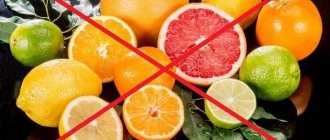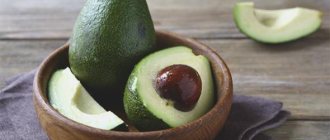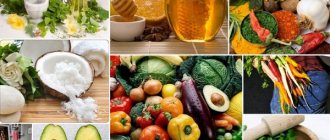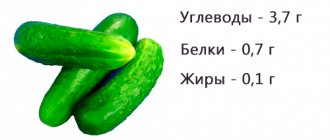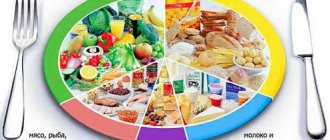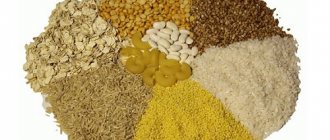Any patient needs a diet enriched with vitamins for a speedy recovery. But there are a number of diseases in which the consumption of fresh fruits, herbs and vegetables, which are the main sources of nutrients, is strictly limited. For example, avoid eating all raw vegetables, including cucumbers, cabbage, carrots and tomatoes, if you have a stomach ulcer.
But if the same vegetables are steamed, many of them will not have an irritating effect on the walls of the stomach. Therefore, before drawing up a dietary menu for every day, you should ask your doctor whether patients with stomach ulcers can eat fresh cucumbers and tomatoes, as well as other vegetables, and in what form it is best to consume them.
What vegetables should you not eat?
It is known that gastric ulcers occur under the influence of an excess amount of hydrochloric acid of gastric juice, which “corrodes” the mucous membrane and reaches the muscular layer of the organ. Many gastroenterologists insist on minimizing the consumption of all vegetables during peptic ulcer disease. In fact, based on the pathogenesis of the disease, you should avoid those foods that can stimulate gastric secretion or themselves contain an increased amount of acid. Refusal from vegetables is not at all justified, since the fiber they contain is necessary for the normal movement of food through the gastrointestinal tract, preventing constipation and removing toxic substances. And besides, the body will find itself in a situation of vitamin deficiency if there are no vegetables in the diet.
The list of foods that are strictly not recommended for ulcers is as follows:
- onion;
- garlic;
- horseradish;
- radish;
- mushrooms;
- pepper;
- legumes;
- carrots, especially during the acute phase;
- tomatoes.
Foods not recommended for stomach ulcers
If you have a stomach ulcer, raw tomatoes should be avoided, as should tomatoes, tomato paste, and tomato juice because they activate the production of gastric juice. During the period of remission, it is allowed to add tomatoes to some dishes, but still, you should not abuse them in order to avoid relapses.
Onions have a dual role in the development of peptic ulcers. Modern gastroenterologists claim that to prevent its occurrence it is necessary to eat onions daily. But, if there is already an ulcerative lesion, then the onion, as a pungent vegetable that stimulates secretion, should be excluded from the diet. Onions can be consumed only after processing, as a result of which it loses its irritating properties.
Garlic can be consumed only during the period of remission and in compliance with the following rules:
- in small quantities can be added to salads, in finely chopped form;
- how an aromatic seasoning can be added to food and carefully stewed;
- Steamed garlic will not have its harmful effect.
The benefits and harms of tomatoes for ulcers
Cute red fruits not only delight the eye with their bright color, but also contain many useful components:
- antioxidants (lycopene, ascorbic acid, zinc);
- vitamins (carotenoids, B vitamins);
- micro and macroelements;
- phytoncides with antimicrobial and anti-inflammatory activity;
- organic acids (malic, oxalic).
The most valuable substance found in tomatoes is lycopene. It is this carotenoid pigment that gives the fruit such an appetizing brightness. Tomatoes are leaders in lycopene content.
Lycopene is part of active biological food additives
Science has proven the beneficial effects of these vegetables on all organ systems and tissues.
Their use has the following effects:
- rejuvenation of the whole body;
- prevention of thrombosis;
- removal of excess uric acid;
- prevention of gout, salt deposits, cholelithiasis and urolithiasis;
- dissolution of sand and stones in the bile ducts, kidneys, salts in joints;
- removal of excess fluid, elimination of edema;
- improving the functioning of the nervous system;
- reducing the likelihood of cardiovascular diseases;
- reducing the concentration of harmful cholesterol fractions in the blood;
- normalization of blood pressure;
- inhibition of cancer cell formation;
- liver cleansing;
- increasing immunity.
Traditional medicine recipes actively recommend the use of this healing product for pathologies of the digestive system, including peptic ulcers of the duodenum and stomach.
Despite the possible benefits of eating tomatoes, medical experts do not consider this vegetable to be absolutely safe due to its high concentrations of organic acids. They inhibit the regeneration process in ulcerated tissues and prevent the rapid healing of damage to the mucosa.
There is a risk of an allergic reaction, since tomatoes are strong allergens.
The effect on mineral metabolism can provoke the movement of stones in the kidneys, gall bladder and ducts. And this can be dangerous if the stones are large in size - the ducts become blocked, which can lead to their rupture.
An unambiguous ban on tomatoes in any form - in case of exacerbation. As your condition improves, you can introduce them into your diet. In this case, preference is given to ripe fruits of non-acidic varieties, peeled, juice and puree.
Allowed vegetables
The permitted list of vegetables includes those that do not affect the gastric mucosa, or have positive properties that promote rapid healing of the defect. These include:
- beet;
- pumpkin;
- potato;
- cucumbers;
- zucchini;
- cabbage.
In folk medicine, peptic ulcer disease has many methods of treatment using white cabbage juice. It contains vitamin U, which promotes faster regeneration of the gastric mucosa. Cauliflower is also used to make cream soups. In this case, you only need to take the inflorescences themselves, since the heads of cabbage contain more acid. Gastroenterologists have different opinions regarding seaweed, so it is better to consult with your doctor.
As for potatoes, they have an enveloping effect on the gastric mucosa. But boiled root vegetables are beneficial, fried potatoes are harmful for ulcers. Particular benefits can be obtained from potato juice. Folk remedies suggest treating ulcers in the acute stage with it. For this purpose, the juice is taken 3 times a day 30 minutes before meals during exacerbation of gastric ulcer. The course of treatment is up to three weeks. In addition, it should be noted that young potatoes are useful, and not old tubers containing the harmful substance solanine.
Pumpkin has a pronounced regenerating effect. It is advisable to boil or stew the vegetable. With this method of cooking, pumpkin removes toxic substances from the body, accelerates gastrointestinal motility and limits the inflammatory process on the gastric mucosa. Pumpkin juice also alkalizes gastric juice, which means it reduces acidity. During the period of remission, drink half a glass of juice before meals once a day; during the exacerbation phase, drink half a glass three times a day.
Cucumbers for stomach ulcers, like zucchini, can be used in dietary nutrition, but their quantity must be limited. Zucchini produces an antitumor effect, but cannot be consumed raw.
Beets are consumed in the remission phase of the disease. It also has an alkalizing effect necessary to control the pH of gastric juice.
Tomatoes and stomach cancer
There are different points of view on this issue. This is due to the fact that full-fledged clinical studies have not been conducted, and those experiments that have taken place have controversial issues.
Theoretically, the content of lycopene can reduce the likelihood of cancer of the gastrointestinal tract - stomach, pancreas, intestines, esophagus.
According to Italian scientists, the risk of developing stomach and intestinal cancer is 30-40% less in people who regularly consume tomatoes. This is due to the fact that metabolic processes are improved, the production of free radicals is suppressed, and the frequency of constipation and putrefaction is reduced.
Naturally, we are talking about normal seasonal tomatoes that do not contain excess nitrates. Otherwise, they will neutralize the entire beneficial effect of using this vegetable.
General recommendations for cooking vegetables
- Vegetables for stomach ulcers must be cooked;
- fried vegetable dishes are excluded;
- the optimal cooking method is steamed, boiled or stewed vegetables;
- During an exacerbation, it is necessary to minimize the content of vegetables in the diet. An exception may be boiled and mashed potatoes;
- after the onset of remission, vegetables must be introduced into the daily diet gradually; there is no need to immediately load the stomach with a large amount of them;
- Since each of the permitted vegetables has its own effect on the digestive system, it is advisable to prepare vegetable stews and mix several types of vegetables to achieve maximum beneficial effects.
It is necessary to take into account the fact that the use of any vegetable must be permitted by the prescribed diet. If there is none, then it is better to consult a gastroenterologist before use.
Benefits of cabbage
- Strengthens the immune system, replenishing the lack of vitamins and other substances.
- Improves blood circulation and reduces cholesterol levels.
- It has a good effect on the nervous system, providing a calming effect.
- Cleanses the body of waste and toxins.
- Helps improve the condition of the intestinal microflora and its peristalsis, as well as the entire gastrointestinal tract.
- Can fight microbes such as tuberculosis bacillus or Staphylococcus aureus.
- Can reduce sensitivity and bleeding of gums, and also relieve toothache.
- Helps get rid of excess weight.
- Relieves fatigue, improves brain function.
- Cabbage masks have whitening properties, it moisturizes the skin well, and has anti-aging properties.
- Rubbing the skin with a cabbage leaf can get rid of pimples and blackheads.
- Cabbage is not just a tasty and healthy product, it is also very low in calories. 100 g contains only 30 kcal.
Gastroenterologists do not prohibit eating cabbage for gastritis. But it should only be stewed, boiled or baked, since raw food harms the lining of the stomach. It is prohibited to eat it fried. It is also worth considering the form of the disease, so consult your doctor before consuming the vegetable.
Tomato juice
Tomato juice and ulcer are incompatible concepts. Like fresh tomatoes, juice is prohibited for consumption during an exacerbation of the disease. Replace tomato juice with fresh potatoes, pumpkin, cabbage or viburnum. They have no contraindications and will contribute to a speedy recovery. If you still want tomato, consume it only if the symptoms of peptic ulcer have completely disappeared.
The most beneficial is freshly squeezed juice from tomatoes without skin. Do not add anything (especially salt or other seasonings). Drink a small amount after meals, so the negative effect on the stomach will be minimal.
What kind of tomatoes can you eat?
It cannot be said unequivocally that tomatoes are strictly contraindicated for patients with peptic ulcers. It all depends on the course of the disease and the characteristics of the vegetable.
Tomato products are in demand all year round
Fresh tomatoes
This type of product can be consumed by patients during the period of remission, after the exacerbation has stopped.
It is preferable to choose sweet varieties with light sourness and thin skin.
It is better to remove the skin, and the tomato itself can be eaten whole or as a puree.
The addition of a few crystals of salt is allowed in the absence of symptoms of dyspepsia, in particular heartburn, sour belching and a feeling of acid in the mouth.
Boiled tomatoes
The safest and healthiest product for patients is tomatoes that have undergone light heat treatment (boiled). At the same time, the amount of lycopene increases, which has a beneficial effect on the entire body as a whole.
Note! Even a boiled vegetable is unsafe at the initial stage of an ulcer, so you can eat it only after completing a course of drug therapy.
Canned tomatoes
This type of vegetable is prohibited due to its traumatic effect on the mucous membrane. It is aggravated by the introduction of seasonings, spices and vinegar.
Note! Salted and pickled tomatoes are contraindicated in case of vascular diseases and salt deposits, because they affect water-mineral metabolism.
This type of product cannot in any way be considered dietary.
Tomato juice
During the period of remission, you can make juice.
Thanks to heat treatment, which concentrates beneficial substances, it can be stored for a long time (in the refrigerator or in jars with a lid).
To improve the taste, you can add a small amount of salt.
cucumbers
How should patients with stomach ulcers treat cucumbers? You will definitely have to give up salted and pickled preparations. Everyone knows that their use is not always safe even for people with healthy digestive organs.
But eating some fresh vegetables is quite acceptable even with a stomach ulcer. Due to the fact that cucumbers can provoke a slight increase in acidity in the stomach, it is still better to stew or bake them a little. In this form, they can no longer cause damage, while maintaining maximum of their beneficial properties and taste.
In a state of exacerbation, eating fresh cucumbers is, of course, strictly contraindicated. But when the condition stabilizes, it is quite acceptable to introduce a small amount of fresh or stewed vegetables into the diet.
Fresh cucumbers must be peeled of their hard skin before use. It is advisable to grind them on a grater. They can be added to soups, which form the bulk of the diet of patients with gastrointestinal ulcers. You should not exceed the permitted daily intake, which is no more than 200 g.
Diet is an important component of the complex treatment of ulcer patients. Without strict compliance with all the requirements of therapeutic nutrition, successful recovery is impossible. Of course, this cannot be done without strict restrictions. But it is thanks to them that it becomes possible to quickly get rid of this dangerous disease and carry out its effective prevention.
Useful and harmful properties
Is it possible to eat fresh cucumbers and tomatoes if you have a stomach ulcer, because these vegetables are considered extremely healthy? Freshly picked foods contain a large amount of vitamins and microelements that are necessary during the recovery period after scarring of the ulcer. In addition, plant foods contain fiber, which stimulates gastrointestinal activity and prevents constipation. This is why some doctors allow cucumbers to be eaten in small quantities after the ulcer has healed.
But during an exacerbation, cucumbers do more harm than good. The fact is that cucumber juice is sour and stimulates the production of gastric contents. An increased amount of hydrogen chloride during gastritis and peptic ulcers is already the main damaging factor for the gastric mucosa, and the consumption of acidic foods enhances this effect. This can provoke the development of complications - bleeding or perforation of the ulcer.
Thus, there are rules for eating cucumbers:
- They can only be eaten during remission.
- Strictly in limited quantities.


